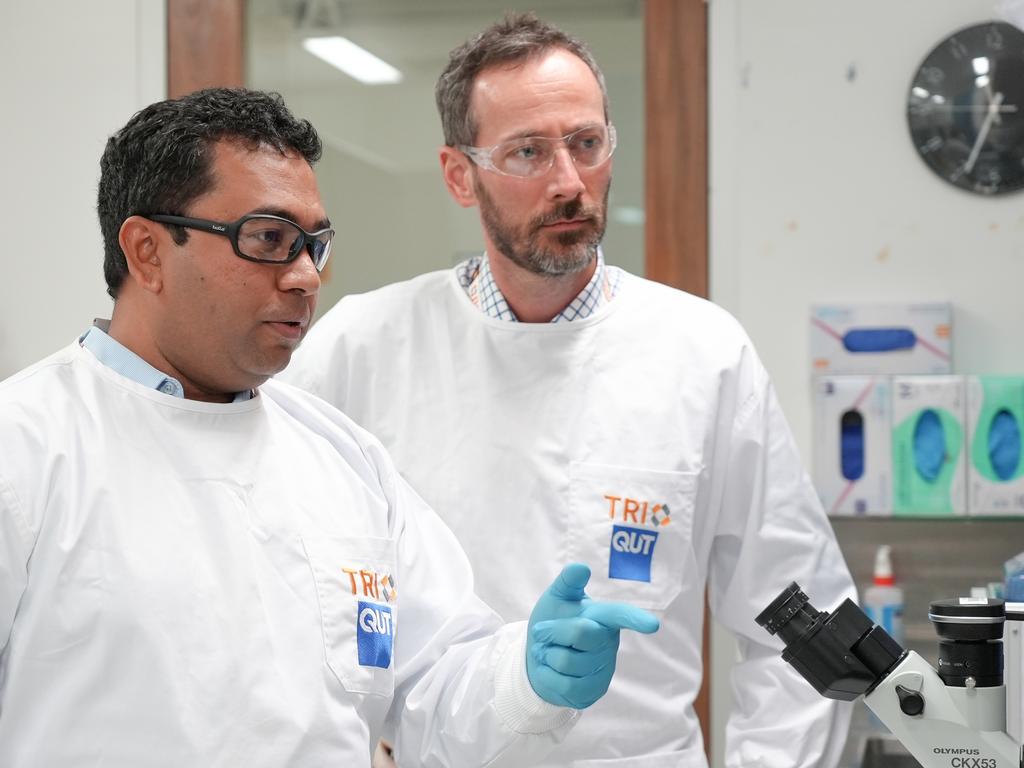Parkinson’s disease clinical trials target gut microbiome
A Brisbane clinical trial will pursue a suspected link between Parkinson’s disease and an imbalance of bacteria in the gut.

Lifestyle
Don't miss out on the headlines from Lifestyle. Followed categories will be added to My News.
A group of the state’s top neurologists have high hopes of stopping or slowing the progression of Parkinson’s disease, with a world-first treatment that targets the gut microbiome – and human trials begin within weeks.
Parkinson’s disease, which affects millions of people worldwide, is the fastest-growing neurological disorder globally. There are currently no effective treatments.
The clinical trial, which will be based at the Translational Research Institute in Brisbane, is built from a body of emerging evidence that points to a link between Parkinson’s and an imbalance of bacteria in the gut.
Thanks to groundbreaking research from Associate Professor Richard Gordon, he and his team from the QUT School of Biomedical Sciences were awarded two grants from the Congressionally Directed Medical Research Programs totalling $4 million.
The team will develop engineered microbes as live biotherapeutics by altering the gut ecosystem and activating protective mechanisms.
Recruitment for the microbiome study will start around August and will be open to both people with PD and healthy volunteers. The study will involve providing a routine blood sample at TRI and a take‐home microbiome kit which participants can mail back to the research team.

The research includes collaborating neurologists from the Royal Brisbane and Women’s and Princess Alexandra hospitals, including Associate Professor John O’Sullivan, Dr Robert Adam and TRI‐based Associate Professor Alex Lehn, who has appointments at Metro South Health and QUT.
“Our study participants are at the heart of our research,” Assoc Prof Gordon said.
“There are no effective treatments for stopping Parkinson’s disease progression.
“Our data suggests that the pathways we’ve uncovered in Parkinson’s patients have an important role in maintaining a healthy gut and function as a protective brake to limit harmful swelling in healthy people.
“Rather than taking the current approach of blocking immune pathways that are activated, our research will explore the potential of restoring gut health, resolving immune activation via the gut to prevent vulnerable neurons from damage.”
The research team will partner with researchers at the Isakson Centre for Neurological Disease Research at the University of Georgia in the US.
The researchers will be funded for four years.
The study will be advertised on the QUT and TRI websites.
To participate in the research, email Associate Professor Gordon






